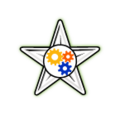Learning patterns/Project/Diversity learning patterns campaign: Difference between revisions
| Line 30: | Line 30: | ||
<tr> |
<tr> |
||
<td valign="top" style="font-size:12px;width:40%;background-color:#A6B2DB"> |
<td valign="top" style="font-size:12px;width:40%;background-color:#A6B2DB"> |
||
<big>''' |
<big>'''Multiple ways to contribute!'''</big><br/> |
||
</td> |
</td> |
||
</tr> |
</tr> |
||
| Line 61: | Line 61: | ||
:use the "edit" option to add your endorsements with wiki markup, use: <br /> |
:use the "edit" option to add your endorsements with wiki markup, use: <br /> |
||
:'''Type the "#" character, and place your [[Help:Signature|signature]]'' <br />''' |
:'''Type the "#" character, and place your [[Help:Signature|signature]]'' <br />''' |
||
</td> |
|||
</tr> |
|||
<tr> |
|||
<td valign="top" style="font-size:12px;width:40%;background-color:#C9DBFF"> |
|||
<big>'''5. Create a Learning Pattern based on a Problem and Solution set '''</big> |
|||
:''Take a problem and solution set and create a learning pattern based on it. '' |
|||
</td> |
</td> |
||
</tr> |
</tr> |
||
Revision as of 19:33, 13 February 2015
Template:Evalsubpage Template:Evalheading
| This page in a nutshell: Support of creative solutions for the upcoming Inspire Grants Campaign Help us create a list of tools and knowledge around gender and diversity. |

Support future grantees in the Inspire Campaign
Share what you know about Diversity in the Wikimedia movement.
- Have you preserved your cultural or national history through photo contests and editing events?
- Have you worked to enrich a particular language or cultural group on Wikimedia?
- Have you studied diversity issues in online communities?
- What have you learned about encouraging diversity on Wikimedia?
|
Multiple ways to contribute! |
|
1. Describe a Problem
|
|
2. Offer a solution
|
|
3. Describe a Problem and Offer a Solution
|
|
4. Endorse others
|
|
5. Create a Learning Pattern based on a Problem and Solution set
|
Problem: Writing for non-native English readers: density and complexity
Sometimes it is hard to know what level of complexity written documentation is and you need to know whether someone with a basic reading ability will understand (User:JAnstee (WMF)).
- Yes, this can be tricky for me too --EGalvez (WMF) (talk) 21:22, 10 February 2015 (UTC)
- Solution: How about using the Hemingway App? (link) -- JAnstee (WMF)
Problem: Writing for non-native English readers: idiomatic language
Native speakers may make frequent use of idiomatic language that makes it harder to translate (even mentally translate for one's own understanding) for non-native speakers.
If one makes a conscious effort, proper idioms like "the whole nine yards" or "busman's holiday" are relatively easy to avoid. Much harder to avoid is the idiomatic aspect of a core feature of English -- phrasal verbs, meaning verbs that combine with a preposition or particle to create their actual meaning. Phrasal verbs are often opaque (as well as harder to find in the dictionary!) to non-native speakers. For example, "blow up" may be harder to understand than "explode" or "enlarge"; "repeat" is more understandable than "do over"; "choose" easier than "pick out". Ijon (talk) 01:49, 13 February 2015 (UTC)
- Solution: consciously avoid idiomatic language, and when you find yourself using an idiom, replace it with a more literal version (in writing), or follow it up (in speech) with a literal re-statement of what you meant. It's hard at first, but experience shows it does become habitual, with time. :) Ijon (talk)
- Solution: Even when I try to avoid using idioms, they still show up in my writing. One thing that helps me detect idioms is to translate a sentence from my native language (English) to my second (Spanish) or third (Flemish) language. I am not as good at speaking Spanish or Flemish as I used to be, so if reading the translation is difficult, I know that I need to choose new words to explain myself (in English). --KittyCarmichael (talk) 06:30, 13 February 2015 (UTC)
Problem: Talking points for diversity
Sometimes, its hard to know how to talk about diversity to new wikimedians or partners. What resources are out there with data and links that we can use?
- Solution: Add your solution here!
Problem: What is a good way to promote your cultural heritage?
--EGalvez (WMF) (talk) 18:24, 10 February 2015 (UTC)
- Yes, this is a good idea. -- MCruz (WMF)
- Solution: I saw in Argentina, they were working with local communities inside and outside the major cities. They were also doing interviews with local leaders to see what is needed in terms of content and how local partners might get involved. --EGalvez (WMF) (talk) 18:27, 10 February 2015 (UTC)
Problem: Uncertainty as to what constitutes sexist incivility
According to a thread at the Gender Gap Task Force, there is uncertainty as to what constitutes sexist incivility. --Djembayz (talk) 19:39, 12 February 2015 (UTC)
- Solution: Get community input and come up with a definition. --Djembayz (talk) 19:39, 12 February 2015 (UTC)
Write a Learning Pattern
Ready to write your own learning pattern?
List of diversity learning patterns that have been created
All Diversity Patterns
No pages meet these criteria.
Gender Diversity Patterns
No pages meet these criteria.
About this initiative
|
For many years, the Wikimedia movement has acknowledged language, culture and gender diversity as important for its goal to share the sum of all human knowledge. The Wikimedia movement faces many diversity challenges.
Several initiatives have tried to understand the problem and work towards increasing diversity in participation and content coverage to address these gaps (e.g., Writing Diversity back in Wikipedia toolkit and Charting diversity). We want to add one more! We are awarding Learning and Evaluation barnstars!
Diversity Learning Pattern Campaign Calendar
|
|||||||||||||||||||||||||||||||||||||||||||||||||||||||||||||||||||||||||||||||||||||||||||||||||||||||||||||||||||||||


